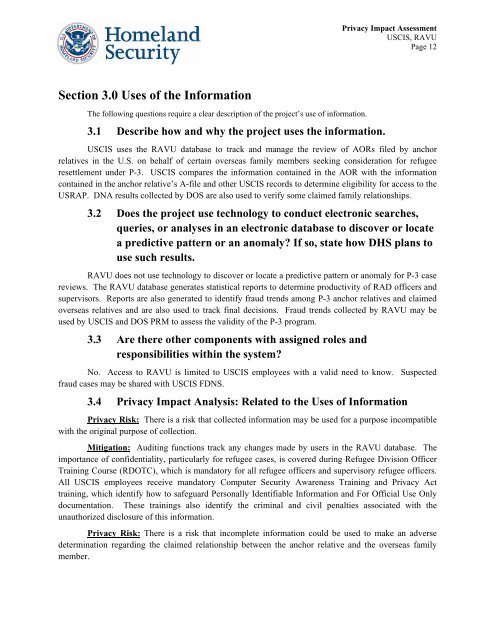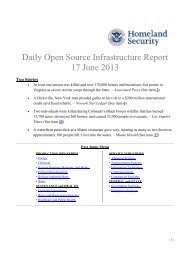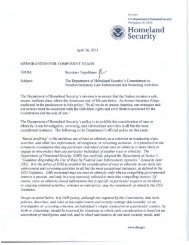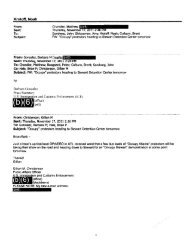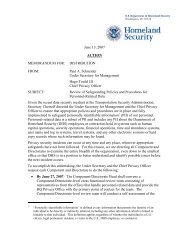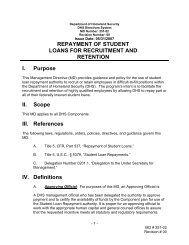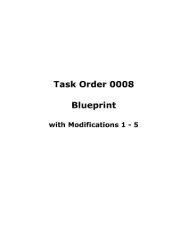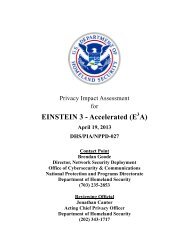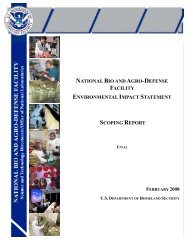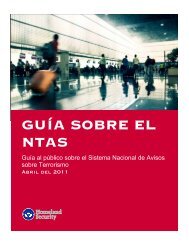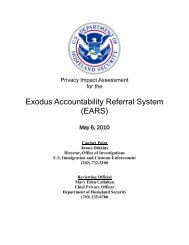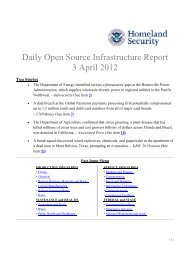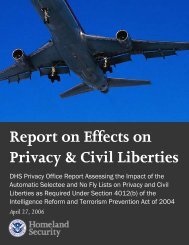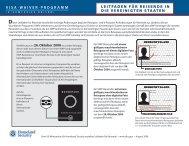RAVU - Homeland Security
RAVU - Homeland Security
RAVU - Homeland Security
Create successful ePaper yourself
Turn your PDF publications into a flip-book with our unique Google optimized e-Paper software.
Privacy Impact AssessmentUSCIS, <strong>RAVU</strong>Page 12Section 3.0 Uses of the InformationThe following questions require a clear description of the project’s use of information.3.1 Describe how and why the project uses the information.USCIS uses the <strong>RAVU</strong> database to track and manage the review of AORs filed by anchorrelatives in the U.S. on behalf of certain overseas family members seeking consideration for refugeeresettlement under P-3. USCIS compares the information contained in the AOR with the informationcontained in the anchor relative’s A-file and other USCIS records to determine eligibility for access to theUSRAP. DNA results collected by DOS are also used to verify some claimed family relationships.3.2 Does the project use technology to conduct electronic searches,queries, or analyses in an electronic database to discover or locatea predictive pattern or an anomaly? If so, state how DHS plans touse such results.<strong>RAVU</strong> does not use technology to discover or locate a predictive pattern or anomaly for P-3 casereviews. The <strong>RAVU</strong> database generates statistical reports to determine productivity of RAD officers andsupervisors. Reports are also generated to identify fraud trends among P-3 anchor relatives and claimedoverseas relatives and are also used to track final decisions. Fraud trends collected by <strong>RAVU</strong> may beused by USCIS and DOS PRM to assess the validity of the P-3 program.3.3 Are there other components with assigned roles andresponsibilities within the system?No. Access to <strong>RAVU</strong> is limited to USCIS employees with a valid need to know. Suspectedfraud cases may be shared with USCIS FDNS.3.4 Privacy Impact Analysis: Related to the Uses of InformationPrivacy Risk: There is a risk that collected information may be used for a purpose incompatiblewith the original purpose of collection.Mitigation: Auditing functions track any changes made by users in the <strong>RAVU</strong> database. Theimportance of confidentiality, particularly for refugee cases, is covered during Refugee Division OfficerTraining Course (RDOTC), which is mandatory for all refugee officers and supervisory refugee officers.All USCIS employees receive mandatory Computer <strong>Security</strong> Awareness Training and Privacy Acttraining, which identify how to safeguard Personally Identifiable Information and For Official Use Onlydocumentation. These trainings also identify the criminal and civil penalties associated with theunauthorized disclosure of this information.Privacy Risk: There is a risk that incomplete information could be used to make an adversedetermination regarding the claimed relationship between the anchor relative and the overseas familymember.


